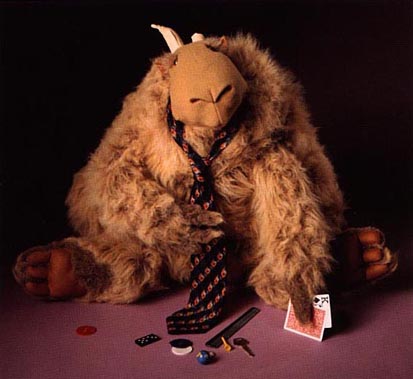I realized a while back that I had the perfect writing sample in my possession to offer potential employers. During my last semester at Rollins (that would be for my MBA) I took a leadership course that forced us to analyze ourselves as leaders. There were many assignments; however, only one took place throughout the whole semester; The Leadership Journal. It’s a journal spurred by writing prompts in which we look at ourselves as leaders. We didn’t have to follow every prompt and we didn’t have to write based only on the prompts. It was solely at our discretion. No one else was ever supposed to see it other than the professor, which meant that we could write about anything so long as it was a genuine reflection of ourselves. I wrote a lot about my goals to be in publishing; it’s one of the reasons this makes for the perfect writing sample. The other reason is that it can get a little personal and anyone reading it would learn more about me.
I thought I would share some entries here. I will attempt not to change them from their original form.
Unprompted entry: The Ning site offered an article about different types of leadership styles. From my recent experiences both at Crummer and in my critique group, I’ve come to realize that the democratic leadership style seems to fit me best. I like to take everyone's input into consideration because I feel this will make the team more invested in the results. In my critique group for local children book writers, I make sure that all my members get a say in the decision making; things such as where we meet, how often we meet, and what time we meet. I do this because I am aware that this group cannot exist without them. If they are not willing to put in the time for this group then it will fail. I want this group to succeed and continue, without me if need be. Therefore, I want to empower everyone to be an equal member of the group.
Prompt Three: My personal and professional goals are similar. I’m writing a book, five books in fact. It’s a high fantasy series that I’ve been working on for years. I’ve mentioned this before. My short term goal is to finish the first book and attempt to get it published, but this is not my career goal. It would be wonderful to write my books for a living, but I’m a bit more realistic than that. This is why I went to Grad school, to have the knowledge to support myself while I’m trying to write. Through additional school, riffled with group projects, I rediscovered another skill I like to use; editing. I mentioned in my last entry that last semester many of my finals were in fact papers which I had to edit. This steered me towards my career.
My professional goal therefore is to be an editor at a publishing company. I don’t need to be a CEO or have my own business, it’s simply not in me to do that, it’s not my passion. However, writing and editing is. One of the steps I’ve taken towards both my professional and my personal goal is to join the SCBWI (Society of Children Book Writers and Illustrators). This society is internationally known and is well known in all publishing houses. Through this group I expect (my outcome expectancy is) to meet authors, publishers, and agents from all the major publishing houses in which I am interested in working. Additionally the SCBWI provided me with a unique opportunity to become a Critique group leader. The critique groups are another benefit to being in this organization, it’s a feature that allows a group of writers to come together and critique each other’s work. This provides support and motivation to the writers, and from it we all learn a lot. I’ve never lead a group like this before and I’ve certainly never started one on my own. The Society was very helpful, but it was/is the most challenging leadership position I’ve been in so far.
How does this relate to outcome expectancies? Well, the group is intended to give me experience editing and working with other authors, as well as strengthen my leadership skills. These skills will then transfer to my job, when I get one, and benefit me in my career. Additionally this group provides me with a motivating factor to actually write my book again.
As for how I can strengthen the link between my actions and the expected outcomes, I don’t know that I can. I am a focused individual, everything I do I try to justify its worth against my ultimate goal or the things most important to me. I think before I leap all the time. Communicating those thoughts to someone else… well – I may need to work on that. I’ve never been in a situation where the ultimate goal of a group of people was a long term one, so I don’t know how to better communicate something like that.
Unprompted Entry: For my critique group I have been attempting to increase the amount of time that my group meets. Not physically, because that’s more time consuming, but online. I’ve suggested this because I feel that my group needs a little more communication in between group meetings. However, I’ve had the second attempt just recently and no one signed into Skype. I’ve no idea how to make this work better for my group. They all seem to agree that additional communication would be useful but as this is a voluntary thing, no one has to participate in any of it. I wonder if, as a leader I’m not asking my group the right questions. I wonder what tools I should be using for situations like these. Moreover, how do non-profit leaders deal with this type of situation? When all of your participants are volunteers, what can you do to ensure they are on board? I’ve thought about using the techniques of a transformational leader, but in reality, it’s not like they aren’t doing what they believe in. In my case, the group is meant as a support group, a gathering of people who read each other’s writing and makes suggestions, ask questions, and motivate each other to continue. That part of it is working, whether or not they show. So how do you motivate someone to attend a group, all the time, and be invested in it when its purpose is being met?
Unprompted Entry: In class we spoke about leadership qualities. The leadership quality not mentioned is authentic. I think people can see when you are being authentic to yourself and to them. No one wants to follow a leader who doesn’t care about his/her followers. Bill George dedicated his book to this concept and titled it “True North: Discover Your Authentic Leadership”. The Leadership Center chose it for their book club earlier this year. It exemplifies this concept that people gravitate towards those who are genuine and who stay true to themselves and their beliefs. I know that I strive to do this every day. I want others to know that I respect them, for who they are, but I find that I have little tolerance for those who pretend to be things, such as being overly friendly to a coworker they don’t like. The reason I have little tolerance is because I find that these are the people who end up talking to others about the people they don’t like. I don’t think this is a professional practice, and I in my personal life I tend to simply keep my distance. They frustrate me, and in my opinion, I don’t need to bother with them. But I wonder if it’s simply a matter of them not knowing who they are. One cannot be authentic until you know exactly where you stand on matters and aren’t afraid to pose your opinion.
People have told me that I tend to be very self aware and always have been. I’m not sure if I believe this, I’ve had my trials, and I’ve had my moments where I look back and wonder what I thought I was doing and where my voice went. I’ve made mistakes in my assessment of people, trusted in the wrong kind, but I do tend to learn from my mistakes and I know that more than likely I won’t be easily fooled again. All of these things formed me into who I am however, and I am more true to myself now simply because of these trials. I don’t want to go through those experiences again and I will always help those who find themselves in those predicaments. I strive to be authentic in every aspect of my life, and encourage others to find their voices.
In my leadership development plan the first year, I stated that I wanted to be a leader who inspires others to be like her. It’s still a goal of mine and I suspect that it always will be.
























